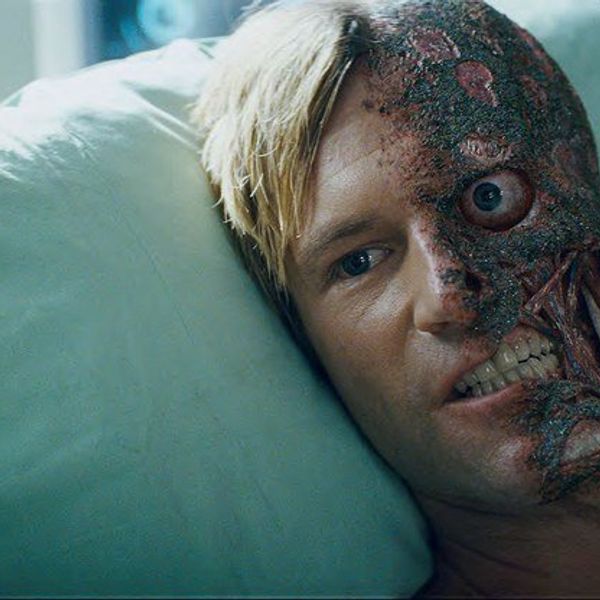A person’s adolescence is a vital part of their life. Traits and personality development branch out during this time in a child’s life, following them through their adulthood. In the film "Citizen Kane," the trauma from his abrupt separation from his parents cause Charles Foster Kane to evolve into a man in need of constant control over everything and everyone surrounding him. His lack of a childhood causes Kane to act immature as an adult as well. In addition, Kane also grows in pride the more fortune and fame he accumulates, leaving him alone in the end.
Kane’s need for control is stressed throughout his life. Due to the fact that Kane had no control over the separation with his parents as a child it left him with a need for authority, so he can no longer endure the feeling of helplessness again. This trait is noticed multiple times throughout the film. To start off, Kane never worked for anyone. He made sure he was always his own boss, in charge of others. His close friends were also his employees. It is even revealed in the third scene of the movie that Kane was never able to finish college. Another example of Kane’s controlling trait is seen in his confrontation with Gettys. Kane chose to throw out the election rather than let Gettys believe he had any power or authority over him. This demand for control can also be seen as a reason why Kane decided to run for governor. No matter where he was, Kane made sure he was the one solely on the top of the pyramid.
As a consequence of a lack of a childhood, Charles Foster Kane tends to display some immature qualities time to time in the film. Everything Kane owns act as pawns for the roles he played during the movie. For instance, Kanes wealth allowed him to run his newspaper company. At the beginning of his career Kane appeared to treat this opportunity as a game, “it might be fun to write a newspaper." This may be a minor trait but it reveals that Kane never really grew up.
The more money and fame Kane accumulated, the larger his narcissistic personality grew. Foreshadowing of this negative evolvement in Kane’s personality can be seen in the second scene after the second interview. Orson Welles uses film noir to contrast Kane playing in the snow, making him look dark compared to the white backdrop. This “darkness” is transferred to his personality as an adult. Kane’s prideful trait is further exposed in the fifth scene after the fourth interview when he chooses to lose the election rather than succumb to Getty’s threat. Kane’s excessive pride continues in the seventh scene after the fourth interview when he completes and publishes Susan Alexander’s bad review just to prove to Leland that he still writes the truth, even though it will hurt his wife. This trait is once again noticed after the fifth interview when Kane builds the Xanadu and has Susan Alexander perform, even though she never wanted to, to disprove the newspaper report published about his alleged affair calling Susan Alexander a “singer”. Ultimately, Kane’s narcissism is heightened by the fact that he never apologizes or says that he is wrong once, no matter the consequences that followed his actions.
Due to the result of his childhood abandonment, Charles Foster Kane grew to develop traits such as, the need for control, immaturity, and pride throughout his lifetime. As a result of these qualities, his actions caused his ultimate demise, turning Kane into a tragic hero, leaving him alone in the end.




















